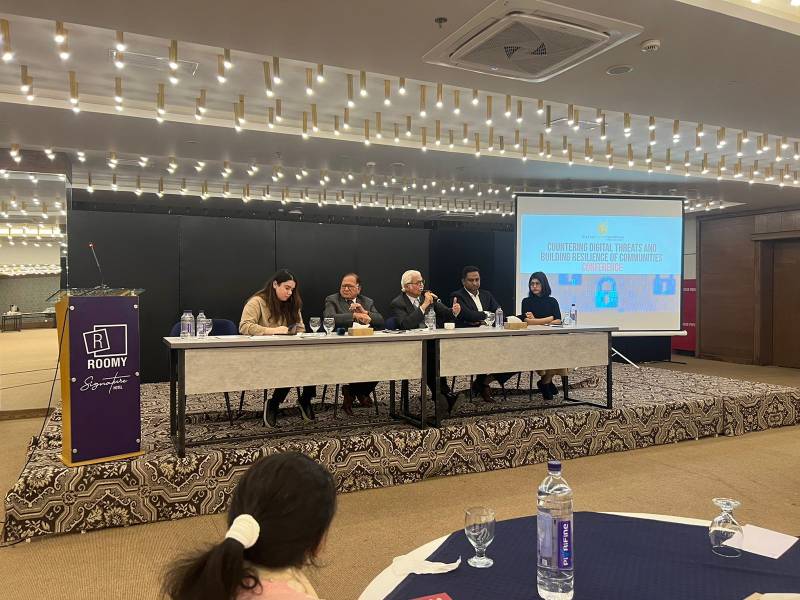
Online disinformation campaigns are a very real issue, and with elections around the corner, the Election Commission of Pakistan needs to step in and take steps that not only combat disinformation but also hate speech.
Speakers stated this during a conference on Countering Digital Threats and Building Resilience of Communities. The conference was organised by the Digital Rights Foundation (DRF) in Islamabad the other day.
DRF's conference addressed the lack of discourse relating to online freedoms in the country, particularly with the rise of hate speech and disinformation against the vulnerable and at-risk communities in Pakistan.
During a panel on 'Bridging the Digital Divide: Ensuring Equal Access for All', former senator and Pakistan Peoples Party (PPP) leader Farhatullah Babar stated that online disinformation campaigns have become a real issue.
"It is very important to consider all actors complicit in the online disinformation campaign, and more than most, it's the state that is complicit."
He urged the Election Commission of Pakistan (ECP) to develop a code of conduct for media houses focused on combating disinformation on social media, adding that the discussion around the digital divide was very timely in light of the upcoming elections.
The session was moderated by DRF Programmes Lead Seerat Khan and featured National Commission on Human Rights (NCHR) Member Minorities Manzoor Masih, Community Leader and Activist Sunil Gulzar Khan and Cyber Harassment Helpline Manager Hyra Basit. The panel addressed mechanisms needed to ensure safe spaces for at-risk communities, particularly in light of the upcoming elections and the need for community building and resilience.
During the conference, Seerat pointed to a 2021 research on "Religious Minorities in Online Spaces" conducted by DRF, which mapped the experiences of religious minorities in online spaces. The research addressed communities' vulnerabilities to attacks, disinformation campaigns, harassment, and hate speech.
Surveys and interviews conducted in the research found that most respondents had experienced online negativity, including backlash or threats based on religious affiliation and/or a combination of factors.
Earlier, during the conference's first panel on 'Navigating Digital Boundaries: Combating Online Hate Speech and Disinformation', a conversation was held on the challenges posed by online hate speech and disinformation targeting at-risk communities.
The panel was moderated by DRF Senior Programme Manager Zainab Durrani and included NCHR Secretary Kamran Rajar, One Man Commission for Minorities Dr Shoaib Suddle, Academic Dr Ayra Patras, Journalist Sajjad Azhar and Bolo Bhi Director Usama Khilji. The panellists shed light on how online hate speech and disinformation manifest online and how they can be combatted as a community.
"When religious minority communities are ostracised in real life, then you see the replication of this behaviour online as well," observed Dr Patras, adding, "We see more hate speech, and there are no recompense mechanisms in place that actually work."
"The social discrimination faced by these communities germinates into social exclusion, and the consequences are far-reaching and become entrenched in real life," she added.
Earlier, DRF Executive Director Nighat Dad noted that "with the upcoming elections, we see how harmful content pertaining to religious minorities in the country is increasing, particularly (the elements of) disinformation and hate speech. The rise in hate speech and disinformation will be even more rapid with the use of artificial intelligence (AI) and generative AI, which is quite concerning."
She suggested the ECP and other relevant government institutions address this issue, including hate speech in the code of conduct for political parties that the ECP is developing.
"Social media platforms also need to do more to address how hate speech and disinformation spread and the impact they have on at-risk communities in countries like Pakistan."

